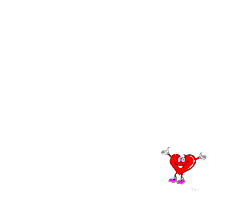Mystical poems
Eeuwenlang was de Perzische dichter en mysticus Djelal-oed-din Rumi (1207-1273) alleen in het Midden-Oosten en Azië bekend. Maar tegenwoordig heeft ook het Westen hem ontdekt als een van de allergrootste literaire en spirituele persoonlijkheden die de wereld ooit gekend heeft. Zijn meesterwerk, de Masnawî, een leerdicht dat zes boeken en zo’n 25.577 versregels beslaat, bestaat uit onderling verweven verhalen, metafysische bespiegelingen en hoge vluchten van lyrische inspiratie.
Jalal Al-Din Rumi
Mystical Poems of Rumi
Uitgever The University Of Chicago Press
Enkele mystical poems
Confused and distraught
Again I am raging, I am in such a state by your soul
that every bond you bind, I break, by your soul.
I am like heaven, like the moon, like a candle by your glow; I am all reason, all love, all soul, by your soul.
My joy is of your doing, my hangover of your thorn; whatever side you turn your face, I turn mine, by your soul.
I spoke in error; it is not surprising to speak in error in this state, for this moment I cannot tell cup from wine, by your soul.
I am that madman in bonds who binds the "divs"; I, the madman, am a Solomon with the "divs", by your soul.
Whatever form other than love raises up its head from my heart, forthwith I drive it out of the court of my heart, by your soul.
Come, you who have departed, for the thing that departs comes back; neither you are that, by my soul, nor I am that, by your soul.
Disbeliever, do not conceal disbelief in your soul, for I will recite
the secret of your destiny, by your soul.
Out of love of Shame Tabrizi, through wakefulness or nightrising, like a spinning mote I am distraught, by your soul.

Reason says, "I will beguile him with the tongue;"
Love says, "Be silent. I will beguile him with the soul."
The soul says to the heart, "Go, do not laugh at me and yourself. What is there that is not his, that I may beguile him thereby?"
He is not sorrowful and anxious and seeking oblivion that I may beguile him with wine and a heavy measure.
The arrow of his glance needs not a bow that I should beguile the shaft of his gaze with a bow.
He is not prisoner of the world, fettered to this world of earth, that I should beguile him with gold of the kingdom of the world.
He is an angel, though in form he is a man; he is not lustful that I should beguile him with women.
Angels start away from the house where in this form is, so how should I beguile him with such a form and likeness?
He does not take a flock of horses, since he flies on wings;
his food is light, so how should I beguile him with bread?
He is not a merchant and trafficker in the market of the world that I should beguile him with enchantment of gain and loss.
He is not veiled that I should make myself out sick and utter sighs, to beguile him with lamentation.
I will bind my head and bow my head, for I have got out of hand; I will not beguile his compassion with sickness or fluttering.
Hair by hair he sees my crookedness and feigning; what’s hidden from him that I should beguile him with anything hidden.
He is not a seeker of fame, a prince addicted to poets, that I should beguile him with verses and lyrics and flowing poetry.
The glory of the unseen form is too great for me to beguile it with blessing or Paradise.
Shams-e Tabriz, who is his chosen and beloved – perchance
I will beguile him with this same pole of the age.
A New Rule
It is the rule with drunkards to fall upon each other,
to quarrel, become violent, and make a scene.
The lover is even worse than a drunkard.
I will tell you what love is: to enter a mine of gold.
And what is that gold?
The lover is a king above all kings,
unafraid of death, not at all interested in a golden crown.
The dervish has a pearl concealed under his patched cloak.
Why should he go begging door to door?
Last night that moon came along,
drunk, dropping clothes in the street.
"Get up," I told my heart, "Give the soul a glass of wine.
The moment has come to join the nightingale in the garden,
to taste sugar with the soul-parrot."
I have fallen, with my heart shattered –
where else but on your path? And I broke your bowl, drunk, my idol, so drunk,
don’t let me be harmed, take my hand.
A new rule, a new law has been born:
break all the glasses and fall toward the glassblower.

It is the rule with drunkards to fall upon one another, to fight and squabble and make tumult.
The lover is worse than the drunkard; the lover also belongs to that party. I will tell what love is; it is to fall into a goldmine.
What may that gold be? The lover is the king of kings; it means becoming secure from death and not caring for the golden crown.
The darvish in his cloak, and in his pocket the pearl – why should he be ashamed of begging from door to door?
Last night that moon came along, having flung his girdle on the road, so drunken that he was not aware that his girdle had fallen.
I said, "Leap up, my heart, place wine in the hand of the soul;
for such a time has be fallen, it is time to be roistering.
"To become hand in hand with the garden nightingale, to fall into sugar with the spiritual parrot."
I, heart-forlorn and heart-yielded, fallen upon your way – by Allah, I know of no other place to fall.
If I broke your bowl, I am drunk, my idol. I am drunk – leave me not from you hand to fall into danger.
This is a newborn rule, a newly enacted decree – to shatter glasses, and to fall upon the glassmaker!
Ode 2180
From these depths depart towards heaven;
may your soul be happy, journey joyfully.
You have escaped from the city full of fear and trembling;
happily become a resident of the Abode of Security
(The Abode of Security seems to be an allusion to heaven which is sometimes
called "the abode of peace" (dar-al salam) by Rumi as against "the abode of pride" (dar-al gorur) i.e., the world).
If the body’s image has gone, await the image-maker; if the body is utterly ruined, become all soul.
If your face has become saffron pale through death, become a dweller among tulip beds and Judas trees.
If the doors of repose have been barred to you, come, depart by way of the roof and the ladder.
If you are alone from Friends and companions, by the help of God become a saheb-qeran (Saheb qeran is a person who is born under a happy conjunction of the planets).
[lord of happy circumstance].
If you have been secluded from water and bread, like bread become the food of the souls, and so become!
This is love: to fly to heaven, every moment to rend a hundred veils;
At first instance, to break away from breath — first step, to renounce feet;
To disregard this world, to see only that which you yourself have seen
(to see only that which you yourself have seen" — Nicholson’s version is
"(not to see your own eye) whence all objects derive their unreal existence).
I said, "Heart, congratulations on entering the circle of lovers,
"On gazing beyond the range of the eye, on running into the alley of the breasts.
Whence came this breath, O heart? Whence came this throbbing, O heart?
Bird, speak the tongue of birds: I can heed your cipher!
The heart said, "I was in the factory whilst the home of water and clay was abaking.
"I was flying from the workshop whilst the workshop was being created.
"When I could no more resist, they dragged me; how shall I tell the manner of that dragging?"
Sweetly parading you go my soul of soul, go not without me;
life of your friends, enter not the garden without me.
Sky, revolve not without me; moon, shine not without me;
earth travel not without me, and time, go not without me.
With you this world is joyous, and with you that world is joyous;
in this world dwell not without me, and to that world depart not without me.
Vision, know not without me, and tongue, recite not without me; glance behold not without me, and soul, go not without me.
The night through the moon’s light sees its face white; I am light, you are my moon, go not to heaven without me.
The thorn is secure from the fire in the shelter of the roses face: you are the rose, I your thorn; go not into the rose garden without me.

I run in the curve of your mallet when your eye is with me;
even so gaze upon me, drive not without me, go not without me.
When, joy, you are companion of the king, drink not without me; when, watchman, you go to the kings roof, go not without me.
Alas for him who goes on this road without your sign; since you, O signless one, are my sign, go not without me.
Alas for him who goes on the road without my knowledge;
you are the knowledge of the road for me; O road-knower, go not without me.
Others call you love, I call you the king of love; O you who are higher than the imagination of this and that, go not without me.
Meer over de mystical poems en Rumi op Wikipedia:
Jalal ad-Din Rumi
